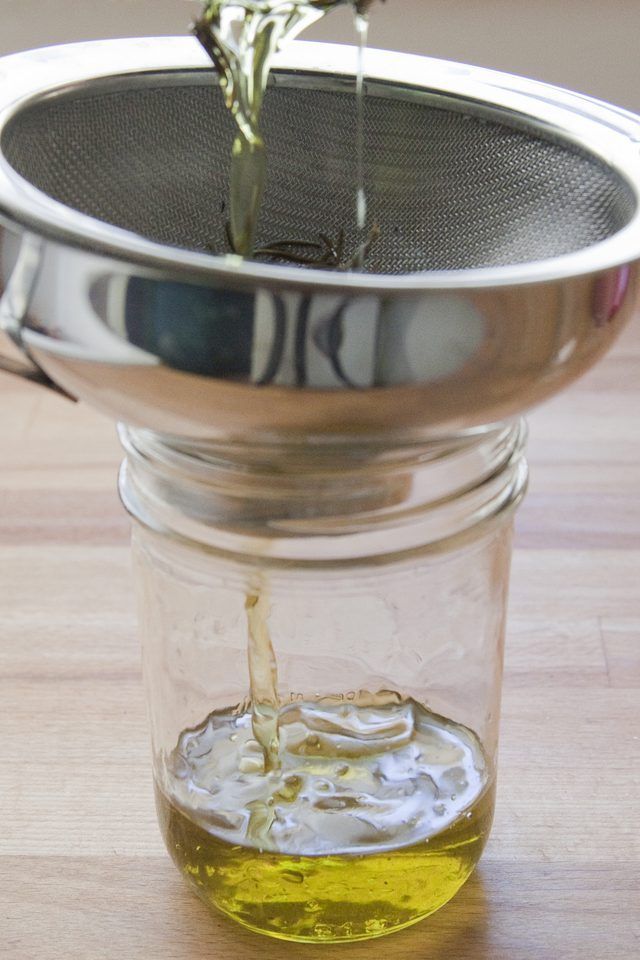Bulbs
Flower Basics
Flower Beds & Specialty Gardens
Flower Garden
Garden Furniture
Garden Gnomes
Garden Seeds
Garden Sheds
Garden Statues
Garden Tools & Supplies
Gardening Basics
Green & Organic
Groundcovers & Vines
Growing Annuals
Growing Basil
Growing Beans
Growing Berries
Growing Blueberries
Growing Cactus
Growing Corn
Growing Cotton
Growing Edibles
Growing Flowers
Growing Garlic
Growing Grapes
Growing Grass
Growing Herbs
Growing Jasmine
Growing Mint
Growing Mushrooms
Orchids
Growing Peanuts
Growing Perennials
Growing Plants
Growing Rosemary
Growing Roses
Growing Strawberries
Growing Sunflowers
Growing Thyme
Growing Tomatoes
Growing Tulips
Growing Vegetables
Herb Basics
Herb Garden
Indoor Growing
Landscaping Basics
Landscaping Patios
Landscaping Plants
Landscaping Shrubs
Landscaping Trees
Landscaping Walks & Pathways
Lawn Basics
Lawn Maintenance
Lawn Mowers
Lawn Ornaments
Lawn Planting
Lawn Tools
Outdoor Growing
Overall Landscape Planning
Pests, Weeds & Problems
Plant Basics
Rock Garden
Rose Garden
Shrubs
Soil
Specialty Gardens
Trees
Vegetable Garden
Yard Maintenance
How to Extract Oil From Rosemary
How to Extract Oil From Rosemary. In addition to being a celebrated savory seasoning, rosemary has a time-honored tradition of medicinal and therapeutic use. For centuries, it has been used to enhance memory, promote hair growth and relieve pain and tension. While none of its professed health benefits have been scientifically proven, studies...
In addition to being a celebrated savory seasoning, rosemary has a time-honored tradition of medicinal and therapeutic use. For centuries, it has been used to enhance memory, promote hair growth and relieve pain and tension. While none of its professed health benefits have been scientifically proven, studies confirm that rosemary is rich in antioxidants and contains natural anti-microbial properties. (See Reference 1)
Rosemaryís essential oil is popularly used in aromatherapy and massage treatments since itís believed to relieve stress and improve concentration. Cold-pressing and steam distillation are common methods used to extract essential oils from herbs like rosemary. However, these techniques usually require extensive experience and the use of complex apparati. Below is a simple stovetop method that uses low-heat and a grapeseed oil base to harness the essential oil of rosemary.
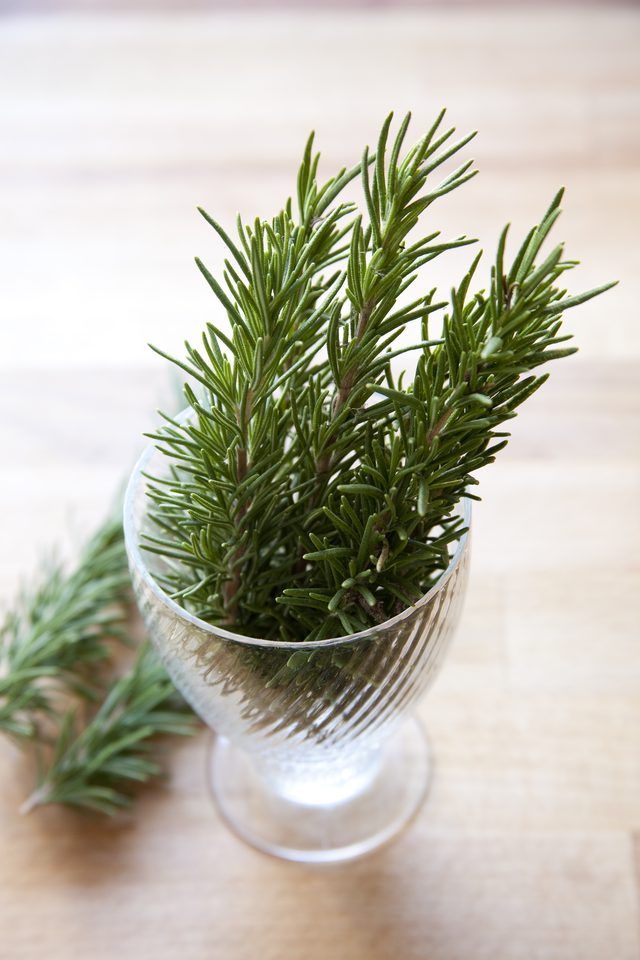
Things You'll Need
Dried or fresh rosemary, two to three ounces
Grapeseed oil, 2 cups
Nonreactive double boiler (made from stainless steel, enamel or glass) or
Crockpot
Step 1
If working with fresh rosemary, allow it to dry out in a warm, dark place for several hours. Make sure the herb has lost most of its moisture, otherwise the essential oil can become contaminated with mold and spoil.
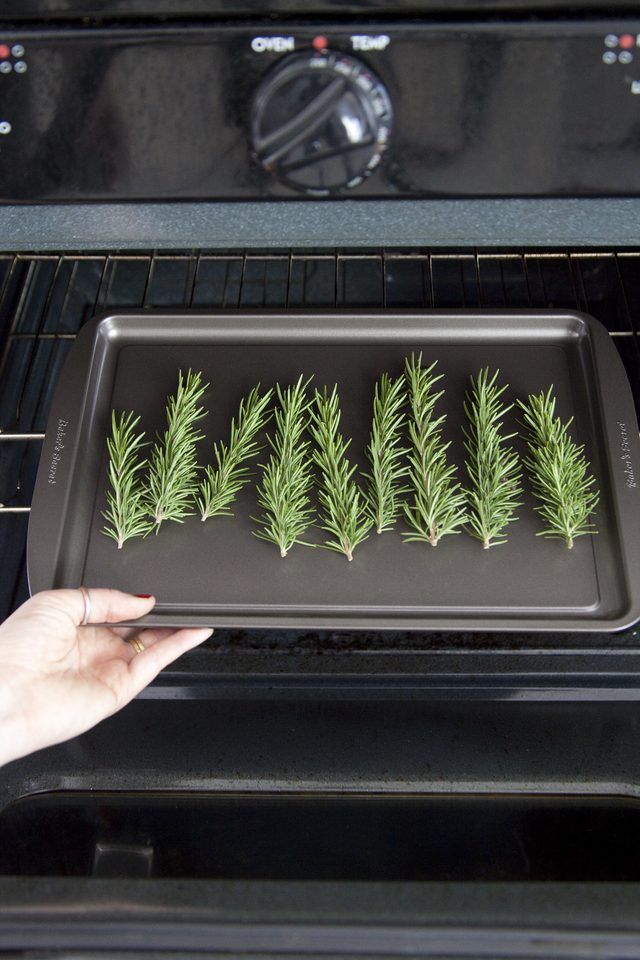
Step 2
Strip the leaves from the woody stalks of your dried rosemary.
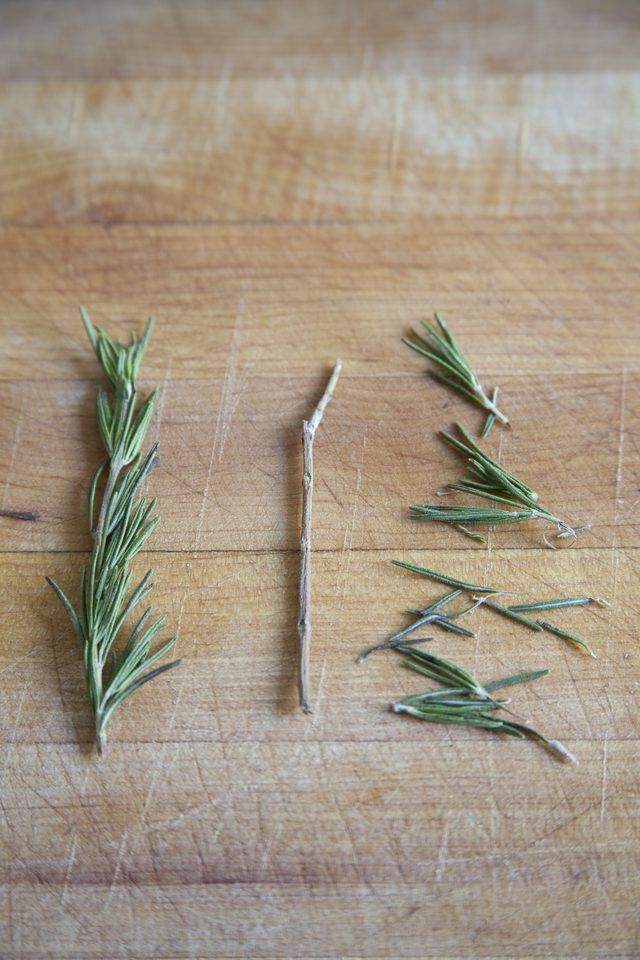
Step 3
If using a double-boiler, fill the bottom pot with water and add two to three ounces of rosemary leaves to the upper vessel. Cover with two cups of grapeseed oil. Simmer on low heat for three hours. If using a crockpot, combine the rosemary leaves with the grapeseed oil and heat on the lowest setting for three hours.
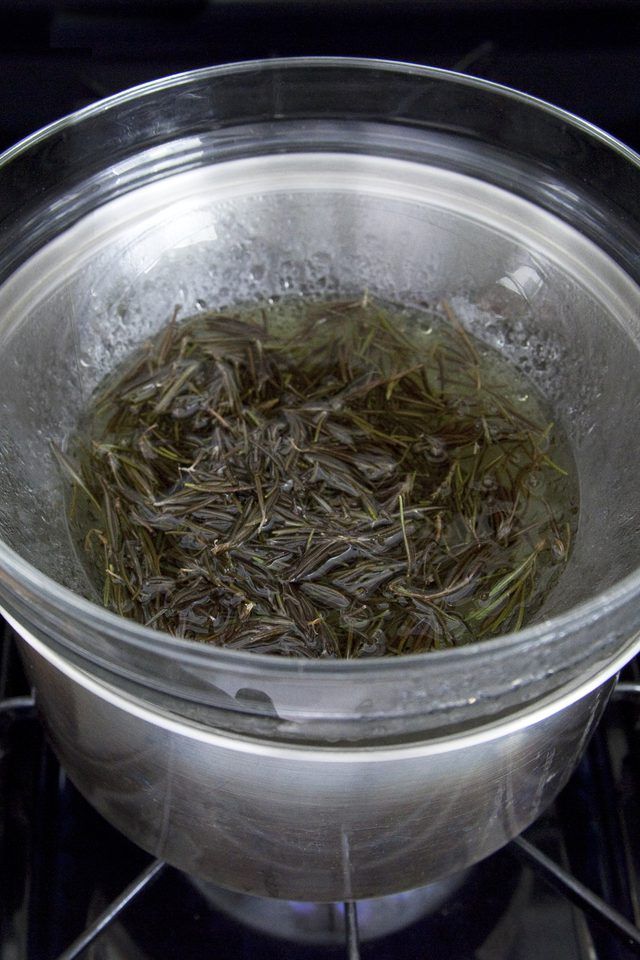
Step 4
Strain the oil into a clean, sterilized glass jar. Seal and set aside in a cool, dark place.
